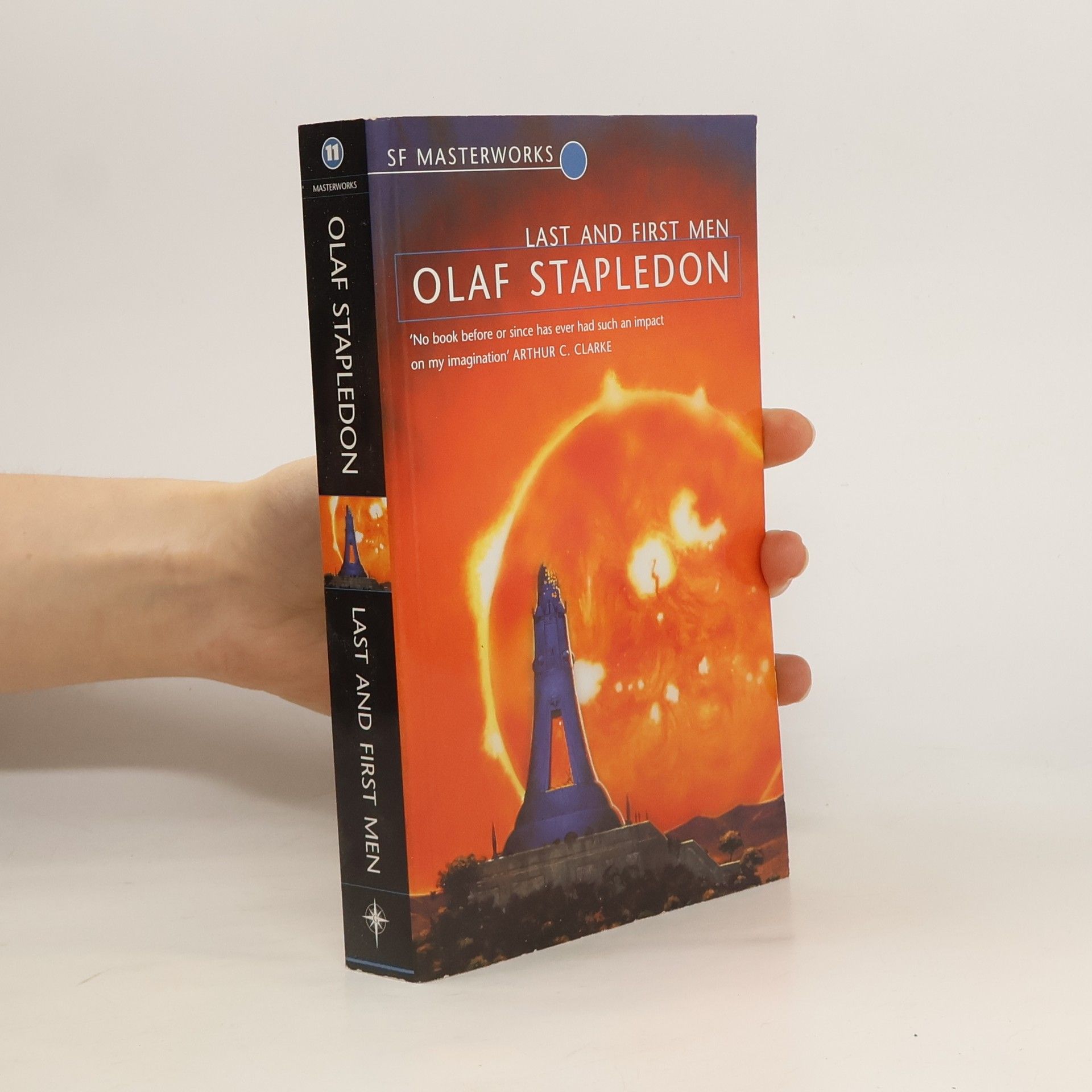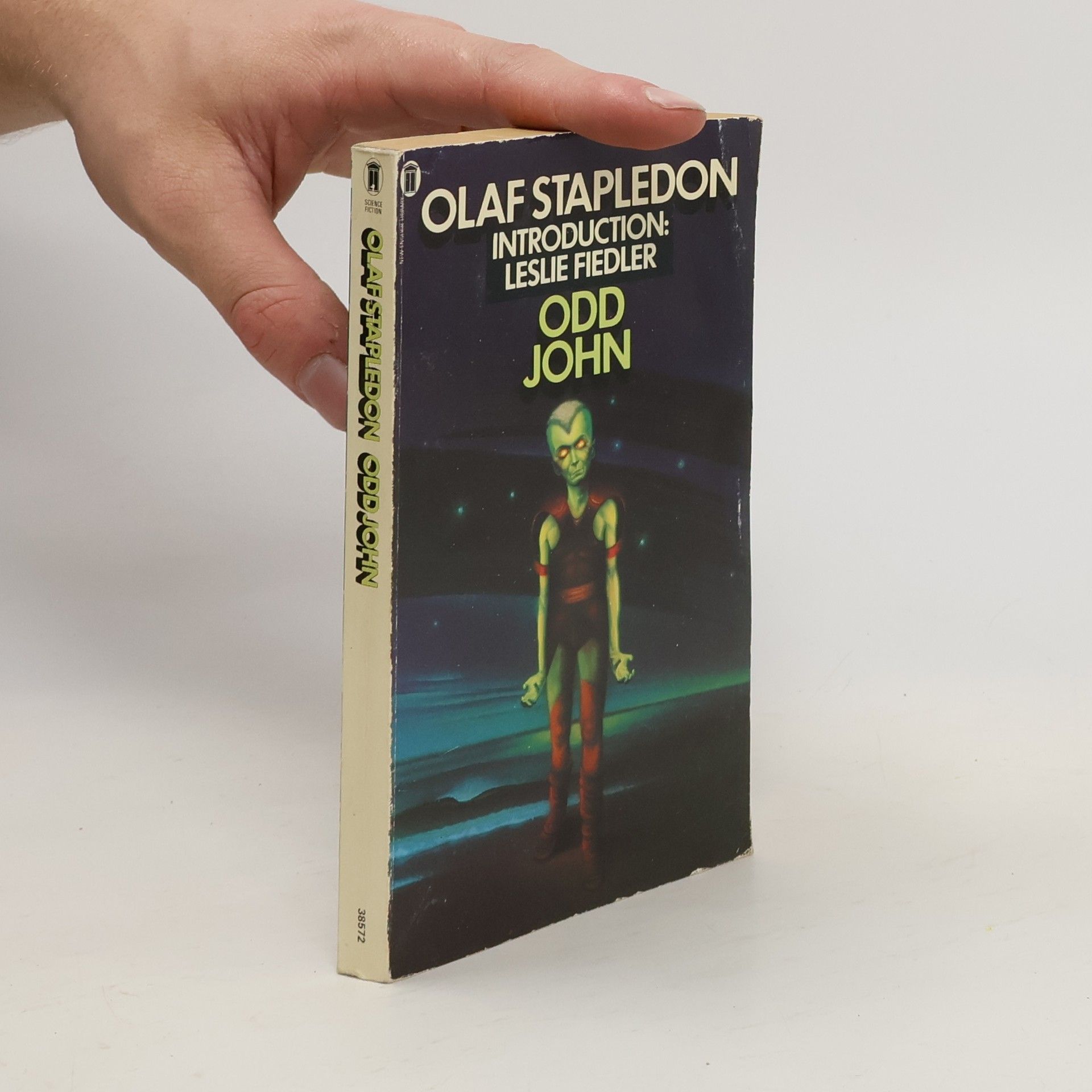Olaf Stapledon Livres
William Olaf Stapledon était un philosophe et auteur britannique de plusieurs œuvres influentes de science-fiction. Son écriture a directement influencé Arthur C. Clarke, Brian Aldiss, Stanisław Lem, C. S. Lewis et John Maynard Smith, et indirectement de nombreux autres. Stapledon a apporté de nombreuses idées au genre de la science-fiction, devenant une force significative en son sein.







Two science fiction novels, written during the nineteen thirties, chronicle the future of civilization, foretelling such events as the worldwide fuel shortage and man's exploration of space
Darkness and the Light
- 172pages
- 7 heures de lecture
Exploring two potential futures for humanity, this work offers a deep and insightful examination of the choices and challenges that lie ahead. It delves into the implications of various societal, technological, and environmental developments, encouraging readers to reflect on the direction of human evolution. With a focus on critical decision-making and the consequences of our actions, the book serves as a thought-provoking guide for navigating the complexities of our future.
Star Maker (Paperback)
- 232pages
- 9 heures de lecture
Star Maker is a science fiction novel by Olaf Stapledon, published in 1937. The book describes a history of life in the universe, dwarfing in scale Stapledon's previous book, Last and First Men (1930), a history of the human species over two billion years. Star Maker tackles philosophical themes such as the essence of life, of birth, decay and death, and the relationship between creation and creator. A pervading theme is that of progressive unity within and between different civilizations. Some of the elements and themes briefly discussed prefigure later fiction concerning genetic engineering and alien life forms. Arthur C. Clarke considered Star Maker to be one of the finest works of science fiction ever written.
This 1937 successor to Last and First Men offers another entrancing speculative history of the future. Cited as a key influence by science-fiction masters such as Doris Lessing, its bold exploration of the cosmos ventures into intelligent star clusters and mingles among alien races for a memorable vision of infinity.
Last and First Men
- 307pages
- 11 heures de lecture
One of the most extraordinary, imaginative and ambitious novels of the century: a history of the evolution of humankind over the next 2 billion years. Among all science fiction writers Olaf Stapledon stands alone for the sheer scope and ambition of his work. First published in 1930, Last and First Men is full of pioneering speculations about evolution, terraforming, genetic engineering and many other subjects.
John Wainwright is a freak, a human mutation with an extraordinary intelligence which is both awesome and frightening to behold. Ordinary humans are mere playthings to him. And Odd John has a plan to create a new order on Earth, a new supernormal species. But the world is not ready for such a change ...
Collected Stories
- 56pages
- 2 heures de lecture
This collection showcases a diverse range of narratives, each exploring the complexities of human experience. The stories delve into themes of love, loss, and identity, often set against richly detailed backdrops that enhance the emotional depth. Readers will encounter a variety of characters, from the everyday to the extraordinary, each facing unique challenges and revelations. The author’s masterful storytelling invites reflection and connection, making this anthology a compelling read for those who appreciate nuanced prose and evocative themes.


